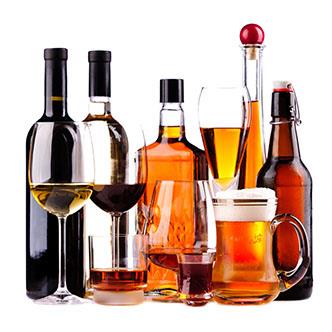
Moderate alcohol consumption may harm rather than protect heart health, based on a study that found drinking 7–13 drinks a week is associated with significantly increased risk for high blood pressure. These findings will be presented at the American College of Cardiology’s 68th Annual Scientific Session and question the heart health benefits of moderate alcohol consumption.
Using data from the National Health and Nutrition Examination Survey (NHANES), this study looked at alcohol consumption and blood pressure among more than 17,000 U.S. adults. The goal was to see whether moderate alcohol consumption—typically defined as up to seven drinks a week for women and up to fourteen drinks a week for men—hurts or helps blood pressure.
We know that heavy alcohol consumption raises blood pressure and risk for hypertension. However, many studies have shown that moderate alcohol consumption helps protect heart health and promotes a healthy blood pressure.
In total, the study included 17,059 U.S. adults who enrolled in NHANES between 1988 and 1994. Participants completed surveys about their drinking habits and had their blood pressure checked at multiple points throughout the study.
Based on survey responses, researchers grouped participants into three groups—those who never drank alcohol, those who had 7–13 drinks a week (moderate drinkers) and those who had 14 or more drinks a week (heavy drinkers). After analysis, researchers found that moderate drinkers were 53% more likely to have stage 1 hypertension, and twice as likely to have stage 2 hypertension.
Stage 1 hypertension is having systolic blood pressure between 130–139 or diastolic pressure between 80–89. Stage 2 hypertension is more severe and is defined as having systolic pressure above 140 or diastolic pressure above 90.
Not surprisingly, researchers also found that heavy drinkers were 69% more likely to have stage 1 hypertension and 2.4 times as likely to have stage 2 hypertension.
Overall, the average blood pressure was about 109/67 mmHg among never-drinkers, 128/79 mmHg among moderate drinkers and 153/82 mmHg among heavy drinkers.
What findings show, according to authors, is that even moderate drinking may raise blood pressure.
“I think this will be a turning point for clinical practice, as well as for future research, education and public health policy regarding alcohol consumption,” said Amer Aladin, MD, a cardiology fellow at Wake Forest University Baptist Medical Center and the study’s lead author. “It’s the first study showing that both heavy and moderate alcohol consumption can increase hypertension.”
Based on findings, authors encourage patients to have their blood pressure checked at each visit and discuss drinking habits with their provider. However, many studies still support the link between moderate alcohol consumption and improved heart health. Additional research is needed to better understand the impact of moderate drinking on blood pressure and risk for heart disease—America’s No. 1 killer.